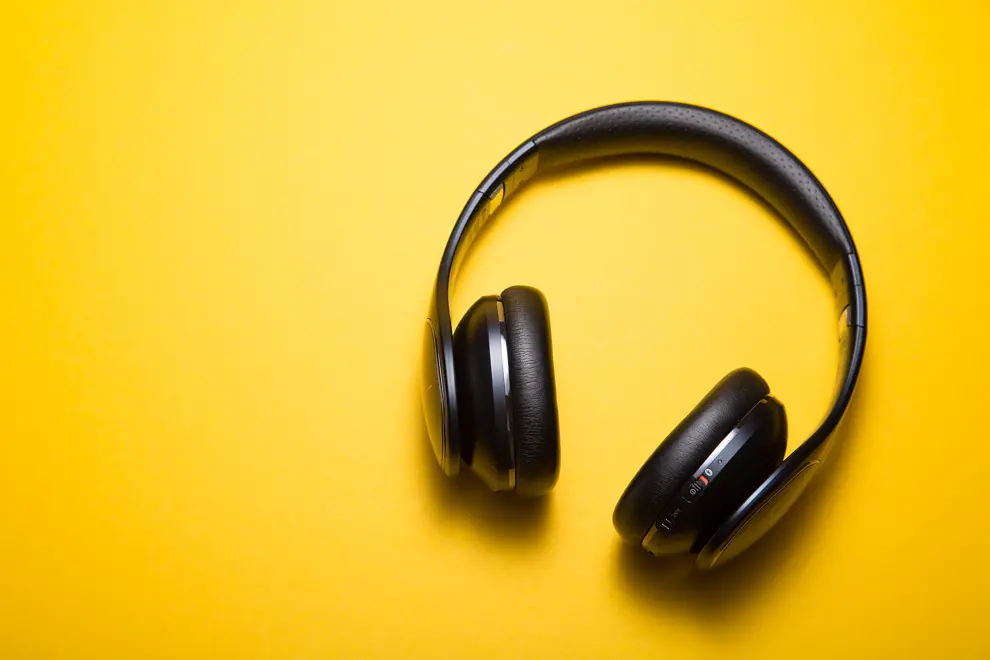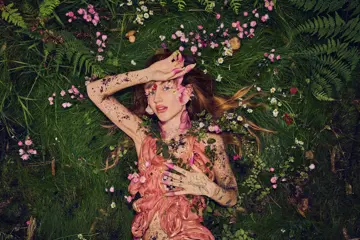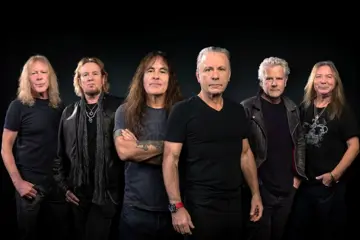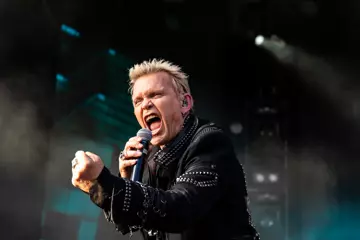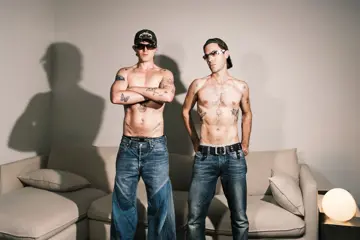Is it time more Australian musicians expanded their marketing from just the frantic glitzy appeal of social media to the brand-loyal intimate listeners of podcasts?
A report by US research firm Luminate identified a high rate of music superfans among podcast tune-ins.
“Simply put, podcast listeners are incredibly passionate about music,” it said. “They’re four-quadrant consumers who hit the bullseye in all the right spots.”
Luminate found over a quarter (28 per cent) of weekly podcast listeners are music superfans, “a 40 per cent greater likelihood to hold this distinction (than) the general population.”
52 per cent pay for music streaming services, over 70 per cent see “availability of podcasts” as important when choosing a platform, a high 62 per cent attend live music events, and 27 per cent are more likely to buy physical music.
The superfans are also important when it comes to the marketing or discovery of new acts.
41 per cent of the weekly podcast listeners regard themselves as tastemakers who influence their friends’ choices – and 32 per cent of these put music at the top of that list.
The report identified “a greater likelihood to actively seek out new and emerging artists (+30 per cent), which – given their evangelical tendencies – make them effective vehicles for helping break new artists and songs.”
Don't miss a beat with our FREE daily newsletter
26 per cent crave more intimate connections with artists and hunt for other ways to engage with them via relevant podcasts which provide interviews and features with music stars.
Assume
It’s fair to assume that Luminate’s US figures are similar to those of Australian podcasters.
In addition, a report from YouGov in September 2023 maintained that music was the top podcast genre among Australians. It registered 29 per cent, with news & politics (17 per cent) and comedy (14 per cent) in second and third place. Science and true crime were 10 per cent each.
While a third of male podcast listeners (33 per cent) listen to music podcasts, it dials down to 25 per cent among female listeners.
More impressive to the music industry is that almost six million Australians now catch a podcast each week. 48 per cent are aged 18 to 34, and 37 per cent are in the 35 to 54 demo.
What’s made podcasts more mainstream is the 49 per cent jump in listeners aged over 60 to 1.125 million, according to Nielsen’s Advanced Audiences data in September 2024.
It’s also balanced out the previous gender gap, with the number of female listeners over 55 increasing by 52 per cent in the last 12 months.
Large podcasts—those with 100,000+ monthly downloads in Australia—account for 63 per cent of all downloads. A predominant 94.2 per cent listen in on their mobile phones.
The term “podcast” was coined in 2004, a portmanteau of “iPod” and “broadcast”.
Some long-running Australian stand-outs have included Motive Radio, Western Oz, Bratmobile and riot grrrl co-founder Allison Wolfe’s I’m In The Band, My Kind Of Scene, Josh Pyke and Elana Stone’s It’s Raining Mentors, Alison Wonderland’s Radio Wonderland, Australian Jazz & Groove, Timmy Trumpet’s Freak Show, WA’s Wide Open Road, DJ Jaytech’s Jaytech Music, and Will Sparks Presents’ Sparks Mania.
Australian podcast creators are on an upswing in numbers and tech-savvy in moving from audio-only to a full audio-visual spectacle.
This is via video podcasts or ‘vodcasts’ which can enhance the listener experience with concert, studio sessions, or music video teasers.
Vodcasts are the new black. According to Morning Consult, 46 per cent of listeners preferred consuming with video. One-third chose YouTube as their favourite podcast platform.
In just one year, the share of Australian creators publishing video podcasts on Spotify were up by 60 per cent. Listener numbers grew 40 per cent, and consumption hours climbed 11 per cent.
Acclaim
The acclaim for two recent podcasts came from how they clicked with changing consumer and creative behaviour.
Broadcaster Richard Kingsmill’s Hi Fi Way: The Making of You Am I dug into the weird goldmine of the seminal Melbourne band’s ‘90s classic record over three episodes in the run-up to the record’s 30th anniversary in February.
You Am I were inventively catering for the superfan 30 years ago through their website and social media, long before the term was invented.
Kingsmill admitted, “This record constantly makes great Australian album lists, and I thought I knew everything worth knowing about it. But once I started scratching away at it, I realised how wrong I was.”
His investigation uncovered the strength and fragilities of the band, including anxiety, panic attacks and phobias. Although on a roll, they also often appeared close to losing control.
“Their singer and songwriter was captivating but unpredictable. It was often difficult to read how he was coping with it all,” Kingsmill related.
Former Rolling Stone ANZ Editor In Chief and Brag Media co-founder Poppy Reid’s new video-first podcast firm Curious Media, with Nudge Group founder Steve Grace, told TheMusic.com.au why podcasts are compatible.
“Artists and musicians are the pre-eminent storytellers. They use video and audio to invite fans into their world to offer the best context they can on who they are and what their art means.
“Fans crave intimacy and authenticity and right now the best way to get that is through filmed storytelling, which is exactly what podcasting is right now.
“But when you add a journalist to the mix, someone who can offer further cultural context from an outside point of view – and ask them to elaborate on the questions often unanswered – that’s powerful storytelling.”
Curious Media’s current and future launch podcasts cover culture-blending by genuinely interesting folks with a quirky twist on celebrity.
They are Ben Lee & Ione Skye’s Weirder Together, Reid’s round-up of music with On The Record, media identity Merrick Watt on the Kokoda Trail, one-time justice system warden Sid Punts’ Prison Chronicles, fitness & business names Amy and Jono Castano about life on social media, and Indo-Fijian chef Fuzz Ali (My Kitchen Rules) using food as a medium to extoll immigrant and non-white experiences.
Despite their growing sophistication and the 39 per cent rate of Aussies listening in each week, Reid advised musicians, “I wouldn't say podcasts are more important than social media.
“I think the two need to be working in tandem. A podcast without a social strategy is like yelling into the ether.”
Music Appeal
The strong appeal of music among podcasters is reiterated by UK-based research company MIDiA. Based on its research, it stressed, “51 per cent of global podcast listeners choose music as their top podcast genre.
“While popular music-focused podcasts do exist, such as Song Exploder and Popcast, the music industry has yet to fully take advantage of the music podcast opportunity.”
MIDiA’s advice to streaming companies was to “improve crossover recommendations on platforms that include music and podcasts in the same place.”
On top of this list are Spotify and YouTube, both claiming to be the biggest platform for podcasts.
According to Spotify, over 9 million Australians now turn to its platform “for music, podcasts and much more.”
Globally, according to the company, 626 million people use it once a month, of which 246 million are subscribers. 58 per cent are male, 42 per cent female; Gen Z make up 62 per cent. It has a 37 per cent worldwide podcast market share.
The current number of podcast listeners worldwide is 584.1 million, set for 651.7 million by 2027. The number of podcasts is tipped to grow from 4.42 million to 651.7 million by 2027.
In February this year, YouTube claimed to have over 1 billion monthly viewers for podcast content worldwide. In 2024, users watched more than 400 million hours of podcasts monthly. Plans through 2025 are to introduce more tools to support podcasters and make it even easier to discover titles.
“This milestone underscores how YouTube has come to play an essential role in podcasting for creators and audiences, and how our investments to improve the podcast experience on YouTube are paying off,” the company said.
“Podcasts with video are more than just a trend, they meet audiences where they are: on YouTube.”
Sweet Spot
Musicians who start their own podcasts are in a sweet spot.
They fit into listeners’ expressed desire to get closer to musicians and celebrities.
Podcasts are cheap to make (or they can be shared by getting a number of bands to run a poddy), and those made on the road have a built-in coolness, excitement and guest power.
They get a further boost in being relevant, can plug merchandise sales, increase the profile of crowd-funding campaigns or attract sponsors and advertisers to increase revenue.
The latter are important, according to Scarborough Research. In one of their studies, 76 per cent maintained ads in podcasts make them aware of new products and services (which would obviously mean those by musicians) and 57 per cent are likely to buy from companies that sponsor podcasts they listen to.
Their podcasts can share superfan experiences as meet and greets on the road, meals together, shout-outs from the stage or tailor-made in-person birthday greetings, workshops, listening parties, and footage from unexpected venues like fish and chips stores or breakfast bars.
With long shelf lives, they can champion music, social and political kindred souls and movements, and tap out-of-the-box sponsors.
The future trend of podcasts also suggests where musicians can cash in.
The continued integration of podcasts and music will offer more opportunities for promotion. The rise of live audio platforms will see gigs and interviews provide real-time, interactive experiences for fans.
Artificial intelligence algorithms can recommend podcasts featuring specific artists or genres, making it easier for fans to discover new music.
AI tools will generate more accurate transcripts and auto-edit podcast episodes. They can create show notes and summaries, and cut together short-form clips for social media.
With such direct and intimate interaction, major brands will begin their own podcasts in which musicians can play important roles. In 2022 alone, Apple Podcasts reported an 82 per cent rise in the number of new branded podcasts.
Niche podcasts can also direct music fans to find less mainstream music acts and sounds.
Spotify encouraged, “Podcasting doesn’t have to be complicated, and you don’t have to be an expert.
“Podcasts are popular for a lot of the same reasons music is popular. You can listen to them anywhere — while commuting to work, tidying up at home, walking the dog.”

